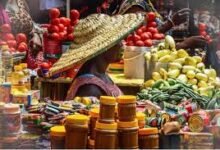
National Petroleum Authority (NPA) has given the assurance that it would work with the police to check illegal trade in petroleum products.
According to the Chief Executive Officer (CEO) of NPA, Dr Mustapha Abdul-Hamid, “the tampering of seals on Bulk Roads Vehicles (Tankers) and the siphoning of fuel leading to fuel adulteration are worrying and should be a thing of the past.”
He said, “the NPA is going to ban tanker drivers who will be caught involved in fuel adulteration.”
Dr Abdul-Hamid asked table-top dealers in petroleum products to stop operating because theiractivities were illegal.
“The NPA is an office responsible for observing the downstream petrol industry, and that combatting illicit fuel exercises is key to what the Authority stands for,” he said when interacting with journalists, in Kumasi, on Friday.
It was part of a working visit to some parts of the Ashanti Region to find out more about the downstream sector of the petroleum industry.
Dr Abdul-Hamid visited the Bulk Oil Storage and Transportation Company (BOST) station, at Kaase, in the Asokwa Municipal, where he engaged with the executives and staff of the office.
He also visited the Kaase Industrial Area where a fuel tanker recently exploded.The affected area is alleged to be a hideout for individuals engaged in illegal fuel siphoning.
Dr Abdul-Hamid said although siphoning of fuel denied the government of revenue, and posed danger to those involved in that act and others.
He said investigations into theKaase explosion would be completed soon and “those to be found guilty would be punished accordingly to serve as a deterrent to others who engage in the act”.
DrAbdul-Hamid said Ghana “is a country in the sub-region that consumes the highest quality of fuel, and it is necessary to keep up with such a trademark”.
On the question of deregulation, he disclosed that the price deregulation policy of the petroleum sector was being reviewed.
Dr Abdul-Hamid said a committee had completed its work on the policy and presented its report to him to study and pass it on to the Minister of Energy to also study it.
He said the Energy Minister and technocrats would decide whether to take it to the Cabinet for a decision to be taken on the next face of the deregulation policy.
The policy was implemented in 2015 to allow marketers and importers of petroleum products to set directly, their prices based on import parity costs, taxes, and margins.
FROM KINGSLEY E.HOPE, KUMASI






